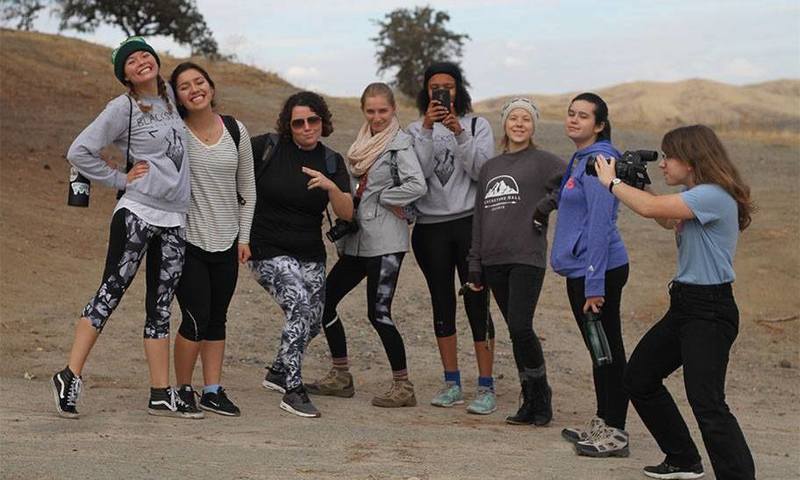As a way to continue the conversations in The Biola Hour, we've invited Sam Gassaway to blog her thoughts after each episode. This is a response to Episode 26 on Social Justice & Education, found here. Feel free to interact with Sam's thoughts in the comments below or on Twitter (@sgkay47).
Hello, your friendly neighborhood female white Christian writer here. I am a Leo who likes Star Trek and Top Ramen. I enjoy Tolkien books and long walks on the beach, and I am looking to be friends with people of color.
Well, that was pretty awkward. Not only does it seem like I am seeking out minorities as a project on a checklist, I am actively making any potential relationship about how they can educate me. Like they are just another element of who I am that other people can see.
So let us start somewhere else.
What is friendship? Is it talking about hard issues? Supporting one another in hard times? Laughing together? Crying together? What makes friendship tick? I think it’s when I have reached the level where I can ask the questions “what was it like growing up where you did?” and “have you ever felt discriminated in your life?”
Or, rather, is friendship a mutual understanding of interest and strangeness that happens when two people come together in a context in which they agree. For instance: I have friends of color I met in my workplace, and even more through the dorm I live in. When I started friendships with them, I did not look at them as my “intentional interaction and integration with people of color” project.
As much as I noticed they did not come from the same background I did, I did not see them as objects to check off my diversity checklist. I saw them as whole people, formed by their backgrounds and experiences—all of which are just as formative and valid as mine. And I think that is where friendship should start.
This week’s Biola Hour guest was Alma Zaragoza-Petty, professor of sociology at Chapman University. She spoke about her struggles as a Latina earning her Ph.D. and common questions about reaching out in friendship across racial boundaries.
She addressed the latter by emphasizing the need of genuine intention. All people want to be approached with kindness and honesty, but shaking someone’s hand for the sake of crossing off “interact with a person of color” from your checklist does not count for anything. Not to mention, it is objectifying and dehumanizing.
This is a struggle all white people face living in a beautifully diverse area of the country. How do we foster friendships with people of color without making them feel like we are only in it for the tokenism? Having token friends for the sake of having friends of color is racist, by the way.
The answer, says Zaragoza-Petty, is an attitude of complete and genuine humility—honesty with oneself and one’s friends. People of color are not prizes to be won. They are people with interests and passions in common with yours. That is where friendship begins: with both face-value and heart-value.
Too often, we can find ourselves looking for something, anything, to be friends with POCs over, rather than finding friends of color in our pre-existing interests. Trust me, they are there (if they are not, perhaps your interests need to change).
As Christians, we believe all people have inherent value and purpose, and not because of their ethnicity and race. It is because they are made in the image of God through and through. I think it is about time we started acting like it.
 Biola University
Biola University


.jpg)
.jpg)